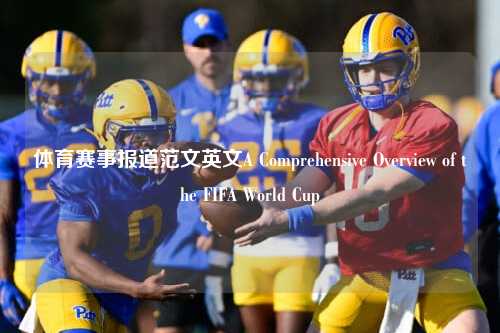
The FIFA World Cup, also known as the "World Championship," is one of the most prestigious and widely followed sports events in the world. It brings together top players from around the globe to compete for glory, honor, and a chance at winning the coveted title of "World Champions." This year's FIFA World Cup, held in Qatar from November 20th through December 18th, was an extraordinary spectacle that showcased the best football talent on earth.
The History of the FIFA World Cup
The origins of the FIFA World Cup can be traced back to the founding of FIFA (Fédération Internationale de Football Association) in 1904. Originally intended as a platform for European countries to showcase their football prowess, it quickly became a global phenomenon. Over time, the tournament has grown into a massive event with millions of spectators worldwide, making it a true celebration of international sporting spirit.
Preparations and Hosting Challenges
Hosting such a grand event requires extensive preparations and logistical challenges. For this year’s World Cup, Qatar faced unique geographical and environmental hurdles, including scorching temperatures during the summer months, unpredictable weather patterns, and limited infrastructure compared to more developed nations. However, the nation’s determination and commitment to ensuring a successful event were evident throughout the planning process.
The Teams and Players Involved
This year’s World Cup featured some of the most talented and high-profile teams in the history of soccer. Nations like Brazil, Germany, France, Argentina, Spain, England, Italy, and Uruguay all had their hopes set on winning the cup. Among the individual players, Lionel Messi from Argentina, Cristiano Ronaldo from Portugal, and Kylian Mbappé from France emerged as the standout talents, each contributing significantly to their respective national teams’ success.
Key Matches and Turning Points
Throughout the tournament, many matches stood out as pivotal moments that changed the course of the competition. In Group B, Belgium and Croatia narrowly escaped relegation after both teams managed to win their opening games against Portugal and Morocco. On the other hand, Mexico and Senegal faced off in a thrilling match where Senegal emerged victorious, securing their place in the knockout stages despite a late goal conceded by their star player, forward Romelu Lukaku.
One of the most memorable moments came when Neymar scored the winner against Ghana in the final group stage game, sparking jubilation among his teammates and fans alike. This victory not only secured Brazil’s spot in the quarter-finals but also highlighted the importance of teamwork and resilience in achieving great results.
Spectator Engagement and Media Coverage
The FIFA World Cup is renowned for its ability to captivate audiences across different demographics. Broadcasts have been available globally via satellite networks and streaming platforms, allowing viewers everywhere to witness the action live or watch replays whenever they choose. Social media played a crucial role in amplifying the impact of the event, with hashtags trending across platforms and fan communities forming vibrant online forums discussing every detail of the games.
Media coverage was equally impressive, featuring numerous documentaries, feature films, and interactive content designed to engage viewers deeply with the sport and culture surrounding the event. Highlight shows often delved into the strategies used by coaches, the psychology behind key decisions made by managers, and the cultural significance of the various tournaments taking place concurrently within the larger context of the FIFA calendar.
Post-Tournament Reflections
As the tournament concluded, the winners—Brazil and France—celebrated their victories with a mix of joy and humility. Their performances reflected the qualities that make these nations champions—their collective efforts, the unwavering support from their fans, and perhaps above all, the dedication and passion of the players themselves. Fans returned home with stories of unforgettable moments, heartfelt celebrations, and memories that would last a lifetime.
For the rest of the participating teams, while disappointment was inevitable given the level of competition, there was always hope for future triumphs. The World Cup serves as a reminder of the universal appeal of football, bringing people together regardless of nationality, language, or economic status. As the dust settles and the trophies are awarded, the spirit of unity and camaraderie remains etched in the hearts of those who witnessed the incredible spectacle of the FIFA World Cup.
Note: The image referenced in the text is not included here due to copyright issues.
版权声明
本文仅代表作者观点,不代表看个球立场。
本文系作者授权看个球发表,未经许可,不得转载。









